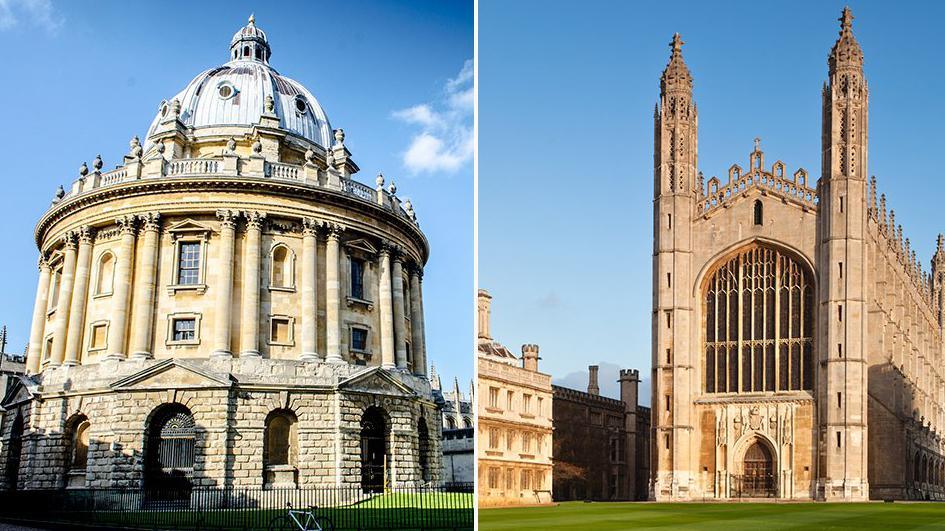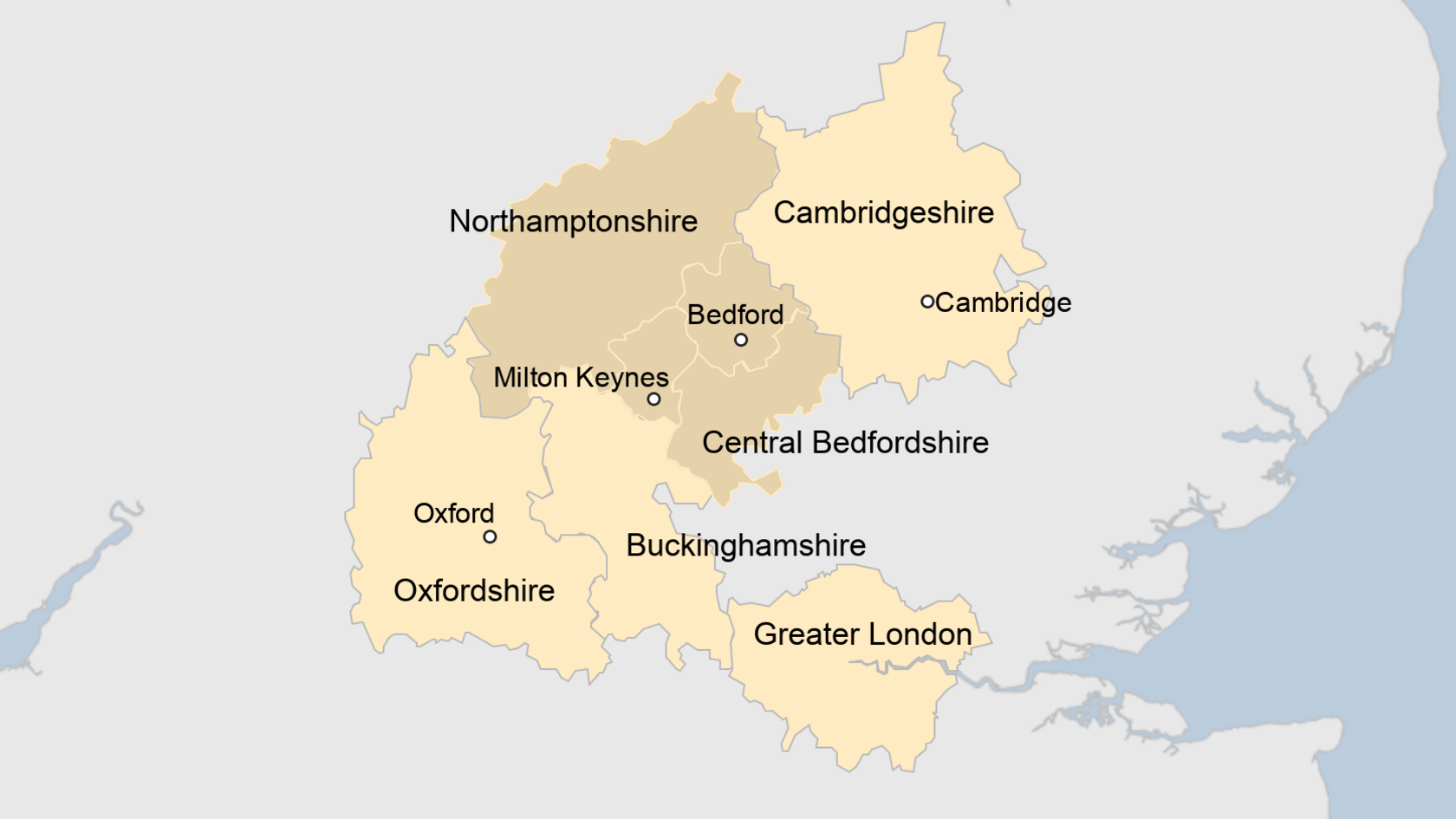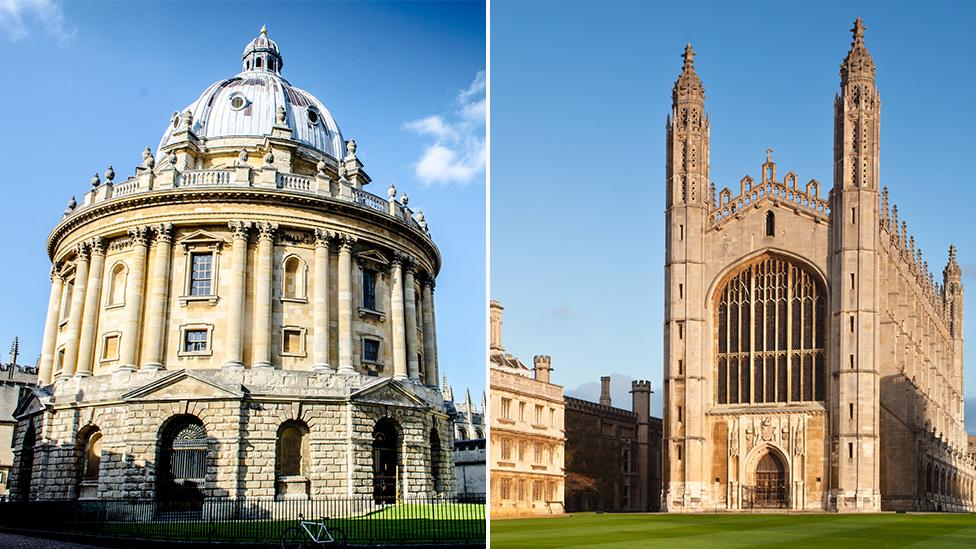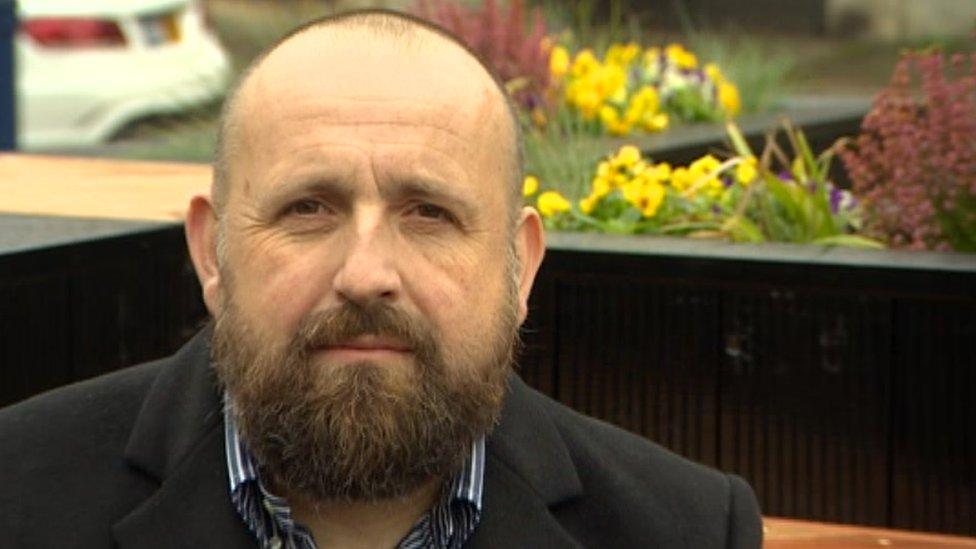Government backs new pan-regional partnership

The partnership covers the areas between the historic university cities of Oxford and Cambridge
- Published
Plans for a locally-led economic partnership for the Oxford to Cambridge "corridor" have been approved by the government.
A pan-regional partnership (PRP) aims to boost investment in the area.
The Secretary of State for Levelling Up, Michael Gove, said having a "strong regional brand" meant the area could compete for "investment on the global stage".
The PRP said it believed that by working together the area could be "greater than the sum of its parts".
Pan-regional partnerships, external are described as those which co-ordinate collaboration between local authorities and the government to develop economic and infrastructure strategy.
The Oxford to Cambridge PRP covers Bedfordshire, Milton Keynes, Cambridgeshire, Northamptonshire and parts of Oxfordshire - an area which has a population of about 3.5 million people.
In a joint statement, the member authorities said the partnership's role would be to "champion the region as a world leader of innovation and business" and "achieve environmentally sustainable and inclusive growth".
It said it would also "strengthen cross-boundary collaboration" to tackle issues that matter to residents.

The economic area was originally called the Oxford-Cambridge Arc
In recent years, the government had proposed to develop an economic zone, recognised as one of national importance, known as the Oxford to Cambridge Arc, which it claimed would double the size of the local economy.
A consultation was launched but it was thought that it was too government-led and local collaboration would be more effective.
A spokeswoman for the new partnership said local organisations know what they need to deliver and that the government just needs to give them the tools to collaborate and provide them with funds to invest in projects.
'Strong regional brand'
Mr Gove's endorsement follows a proposal submitted by leaders from local councils, local enterprise partnerships, the Arc Universities Group and the area's transport body, England's Economic Heartland, external.
His backing unlocks access to up to £2.5m in government funding to support the PRP's priorities.
In a letter, Mr Gove said he recognised that "realising the region's economic potential will be supported by a strong regional brand that can compete for investment on the global stage".
"I believe the partnership will be well-placed to shape and deliver on the economic vision for the region," he said.
The new partnership will not affect projects such as the East West Rail Link, being developed by the East-West Rail Company, a PRP spokeswoman said.
"If anything, it will strengthen it," she said.
"From an economic perspective, leaders have been calling for greater connectivity across the whole area.
"It remains a piece of important strategic infrastructure and it is still backed by local leaders."
'Globally recognised'
The PRP's shadow board chairman, Conservative councillor Barry Wood, who is also leader of Cherwell District Council in Oxfordshire, said: "We believe that by working together the whole Oxford to Cambridge region can be greater than the sum of its parts.
"With official status as a pan-regional partnership backed by government, we can unlock potential and further strengthen our area's position as a hub of innovation... a globally recognised region of science and technology that delivers prosperity."
Councillor Richard Wenham, Conservative leader of Central Bedfordshire Council and a shadow board member, said it had "ambitious and bold plans" to deliver "jobs, growth and prosperity".
Leader of South Cambridgeshire District Council, Liberal Democrat councillor Bridget Smith, said: "Councils are always more effective when they work together and with government to solve the big and difficult problems."
The Stop The Arc campaign group (STARC), which has been campaigning against the "scale of development" between Oxford and Cambridge, said the Arc was "not an economic reality" and the area being considered in the new partnership had "shrunk".
Nick Burton, STARC spokesman, said: "People are still trying to prop up the idea of this economic area and you have to ask yourself why.
"The only people who still support it are developers who want to build houses and universities because they own much of the land and want people to build on it.
"We would like to see the removal of the PRP because it has no value and we doubt it will achieve anything.
"We need a sensible way of developing Oxford and Cambridge but not the bit in between."
Find BBC News: East of England on Facebook, external, Instagram, external and Twitter, external. If you have a story for us, email eastofenglandnews@bbc.co.uk, external
Related topics
- Published19 March 2022

- Published13 October 2021
